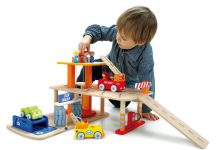According to a former teacher, students can lose as much as 20 marks in exams due to careless mistakes. So how can you help avoid such “costly” mistakes?
John Yong gives us valuable tips.
How often does your child lose marks as a result of careless mistakes? “Work harder! Be more careful!” We hear these words often. But it does not help the child Psychology, she may interpret the statement as one that brands her as lazy, thus demoralizing her especially when she has put in effort. Here are a few suggestions you may try:
Change That Attitude
Accuracy is a habit that can be cultivated. According to Professor Arthur Costa, proponent of ‘Habits of the Mind Theory’, accuracy is one important habit that intelligent people dispose when dealing with problems. To begin with, a student needs raise her own expectations for accuracy. If her work is fraught with carelessness, educate her that she needs to pay greater attention to accuracy. Ask her to go through her work again and pick out the careless errors and ask her to re-do the question to get it right. After going through this discipline, her mind will adapt and subconsciously respond with a higher level of attention to accuracy for subsequent tasks. She’ll also be able to spot her regular errors like ‘2×3=5’. Some believe that nothing can be done about carelessness. Impress upon her that this can be changed with consistent attention to accuracy.
Heightened Awareness
Having a heightened sense of awareness of a ‘danger zone’ in a particular type of question can help students to slow down and pay particular attention to those specific areas.
Example 1
Given that there are 20 girls in the class, the number of girls is 2/3 of the number of students in the class. How many students are there in the class?
Example 2
Given that there are 20 girls in the class, the number of girls is 2/3 of the number of boys in the class. How many students are there in the class?
In example 1, there would be 10 boys in the class, giving a total of 30 students in the class.
In example 2, there would be 30 boys in the class, giving a total of 50 students in the class.
Notice that a slight change in the question changes the situation significantly. Awareness of a ‘danger zone’ can help students derive the actual meaning of the question, thus avoiding the mistake of interpreting the question wrongly. You can help strengthen your child’s sense of awareness through conscientious practice.
Put It Down On Paper
Putting all relevant information on paper in meaningful format serves as an important way to eliminate mistakes. Your child needs discipline and systematic thinking to develop this effective habit. The “black and white” method of using models, tables or lists helps your child ‘see’ the solution and acts as a checklist for accuracy.
Test The Answers
Some students use the tedious method of going through all the steps to check an answer. One time-saving method is to use the final answer to see if the conditions given in the question are satisfied.
Develop Systematic Thinking
Teach your child to think and work out processes in a systematic and logical fashion. If your child employs ‘scatter-brain’ thinking, it is likely that she presents the solution in a disorganized way. If your child skips some steps in the process, it can be confusing for the examiner. Try teaching logical thinking with simple tasks like planning for a picnic and help her organize the steps involved.
Do One Thing At A Time
According to Dr John Medina, author of “Brain Rules”, our brain is a ‘sequential processor’ and cannot multi-task effectively, thus making us biologically incapable of processing attention-rich inputs simultaneously. So focusing on one thought at a time can help reduce careless mistakes significantly. It is so apt for a British road safety campaign to adopt “Good Drivers Just Drive” message.
Accuracy Training
This can be achieved with games and puzzles that test mental accuracy. ‘Brain Age’, developed by Professor Kawashima, and ‘Tower of Hanoi’ are good options.
State Of The Mind
Sufficient sleep, calmness, and relaxation techniques also help to ensure students are not anxious during examinations.
John Yong is the Founder and CEO of Scharff Activity-Based Learning Centre and VIP Learning Centre. He is a member of Mensa, Chartered Financial Analyst (CFA), Certified Hypnotherapist (NGH, NCH) and trains students in PSLE Maths and leadership skills and conducts Math Olympiad training. He believes that habits of the mind and psychological state of a student plays a vital role in achievement.









































